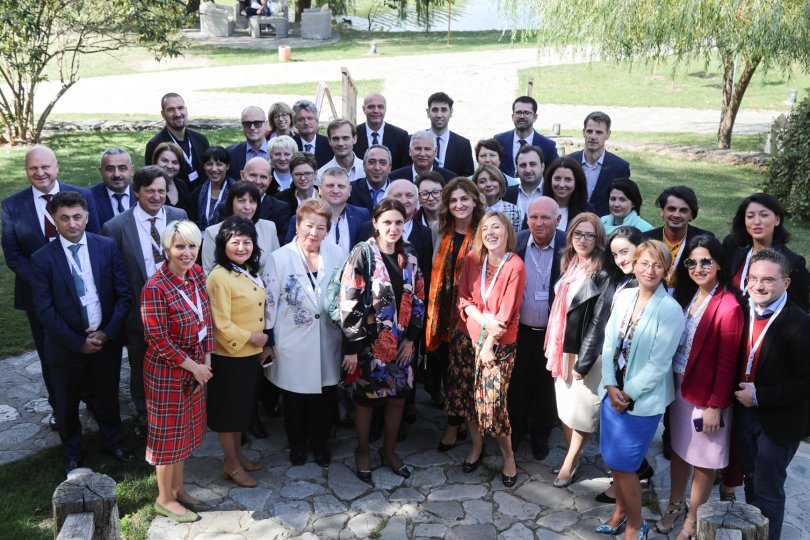
There is no learning like work-based learning
In Georgia there is a paradox: the economy is not creating enough jobs, but businesses complain about the shortage of qualified workers. This is why the country’s private sector is so interested in apprenticeships and other forms of work-based learning. ‘Learning in the workplace improves adaptation to the work environment and gives better work skills than learning in the classroom.’ says Elguja Meladze, President of the Georgian Employers Association. ‘And no public education institution can keep up with the technological progress of businesses. So work-based learning is our top priority, and we are working actively with government and donors to realise it.’
Mr Meladze was speaking at the Eastern Partnership Forum on Work-based Learning in Vocational Education and Training, organised by the European Training Foundation in Lopota, Georgia on 9-11 October 2018. The forum brought together representatives of education and business from Armenia, Azerbaijan, Belarus, Georgia, Moldova, Ukraine, Kazakhstan and experts from the ETF, the EU, the Member States and other partner countries to share knowledge and experience about how to implement the work-based learning in their vocational education and training systems.
Integration of worked-based learning into vocational education
Spurred by the well-documented advantages of work-based learning in improving employability, reducing youth unemployment and boosting productivity in enterprises, the seven countries have been working together for four years in this topic. The European Training Foundation has been supporting them though peer-learning and capacity building in moving from predominantly schools-based systems toward vocational education with workplace learning integrated.
As Catalin Gherman, Deputy Head of Cooperation at the EU Delegation to Georgia, pointed out ‘Vocational education and training is a very complicated business by the nature of the topic and the variety of actions and actors that need to work together.’
The group looked in depth at the experience of several EU and non-EU countries in establishing development units in its vocational schools to network with business, organising work placements for students and in training and certifying in-company trainers. A highlight of the Forum was the presentation of the ETF’s handbook for policy makers and social partners on Financing work-based learning as part of vocational education and training.
Partnership between the many different actors involved was a cross-cutting theme of the discussions. ‘We are working across ministries in Georgia because work-based learning can’t be achieved by the Education Ministry alone’ said Irina Abuladze, Georgian Deputy Minister for Education, Science, Culture and Sport. ‘Other ministries and stakeholders from the private sector and civil society need to be involved.’
‘The ETF looks forward to meetings like this becoming a regular occurrence’ said ETF expert Didier Gelibert. ‘It’s all about looking to the future and moving forward together.’
Did you like this article? If you would like to be notified when new content like this is published, subscribe to receive our email alerts.